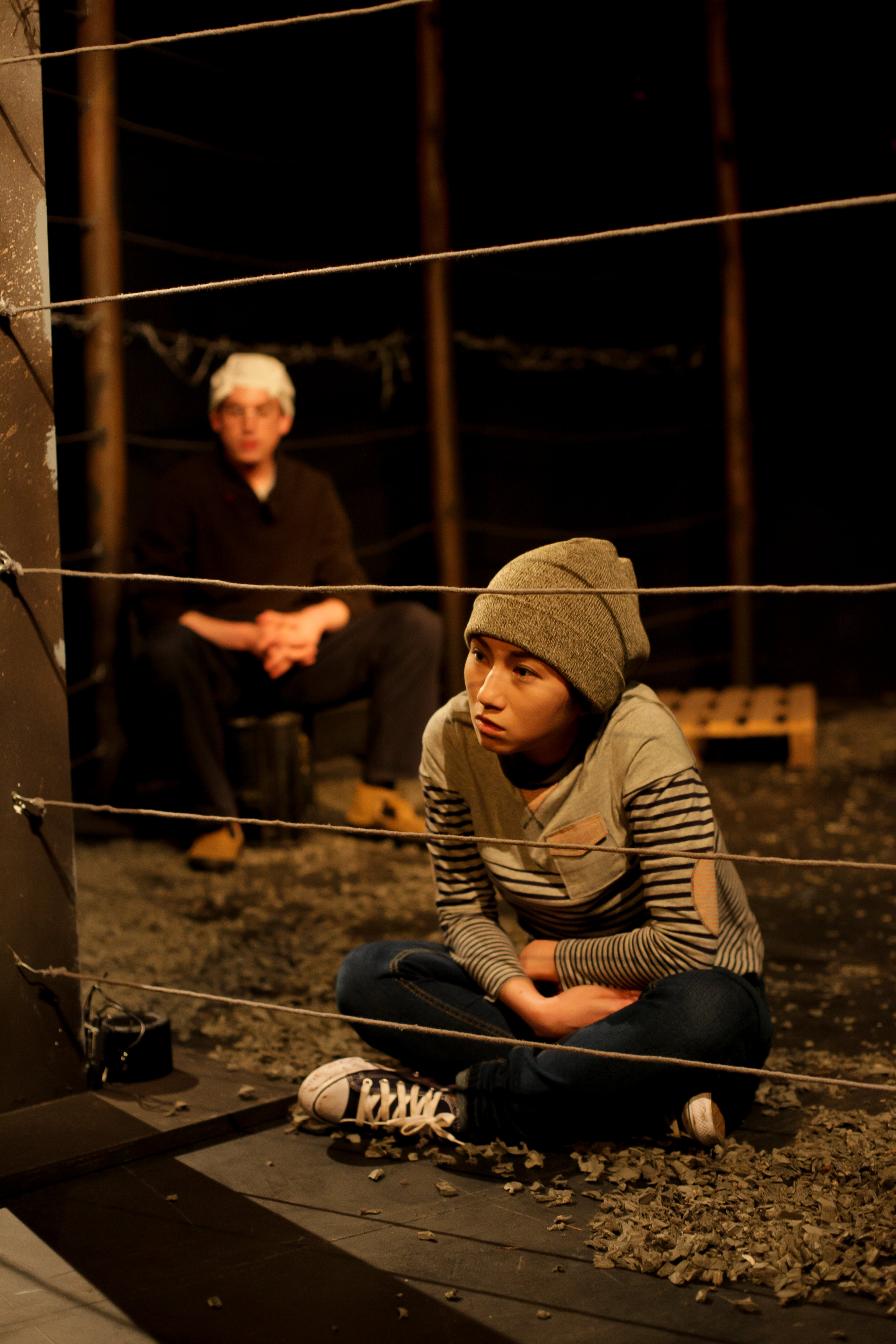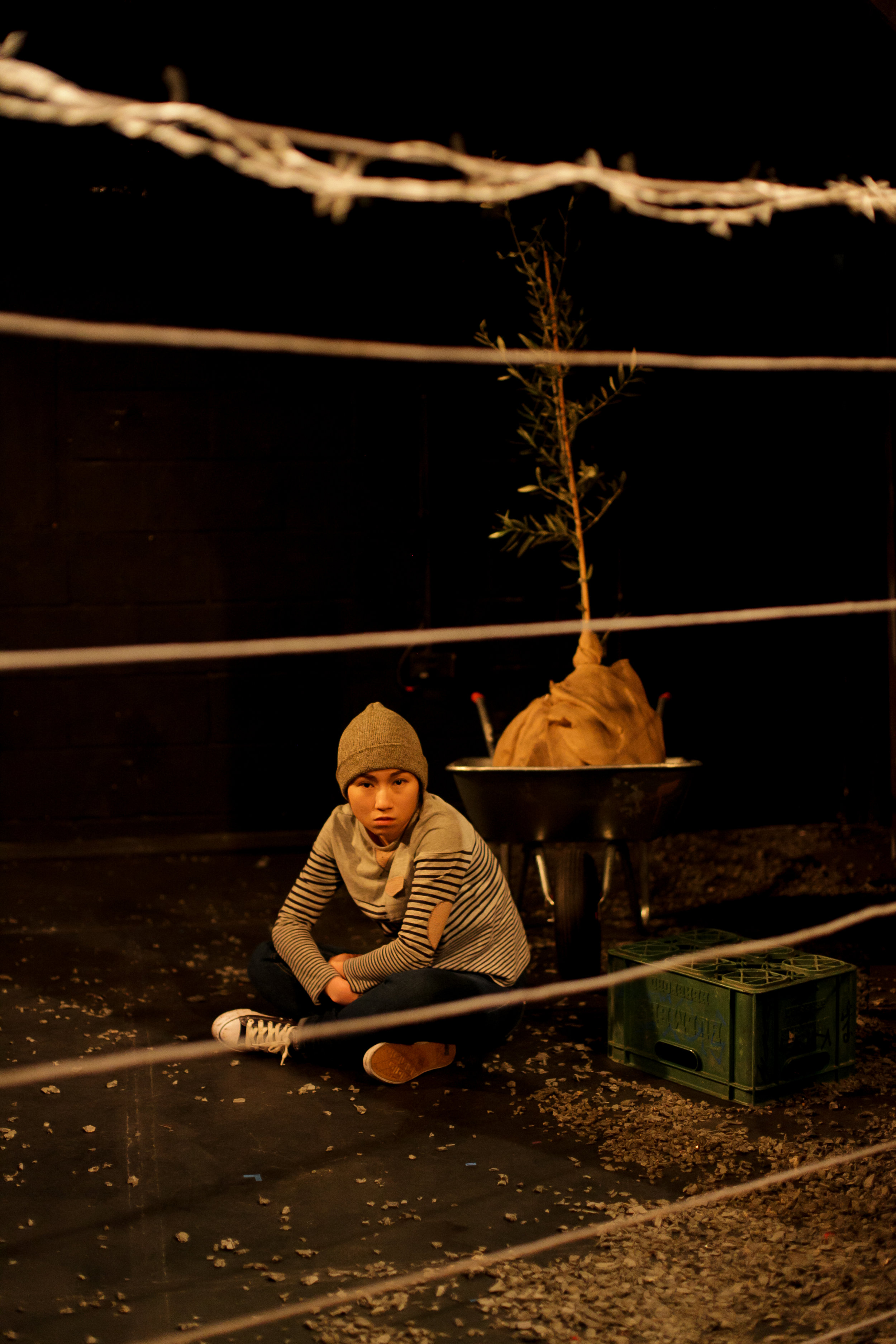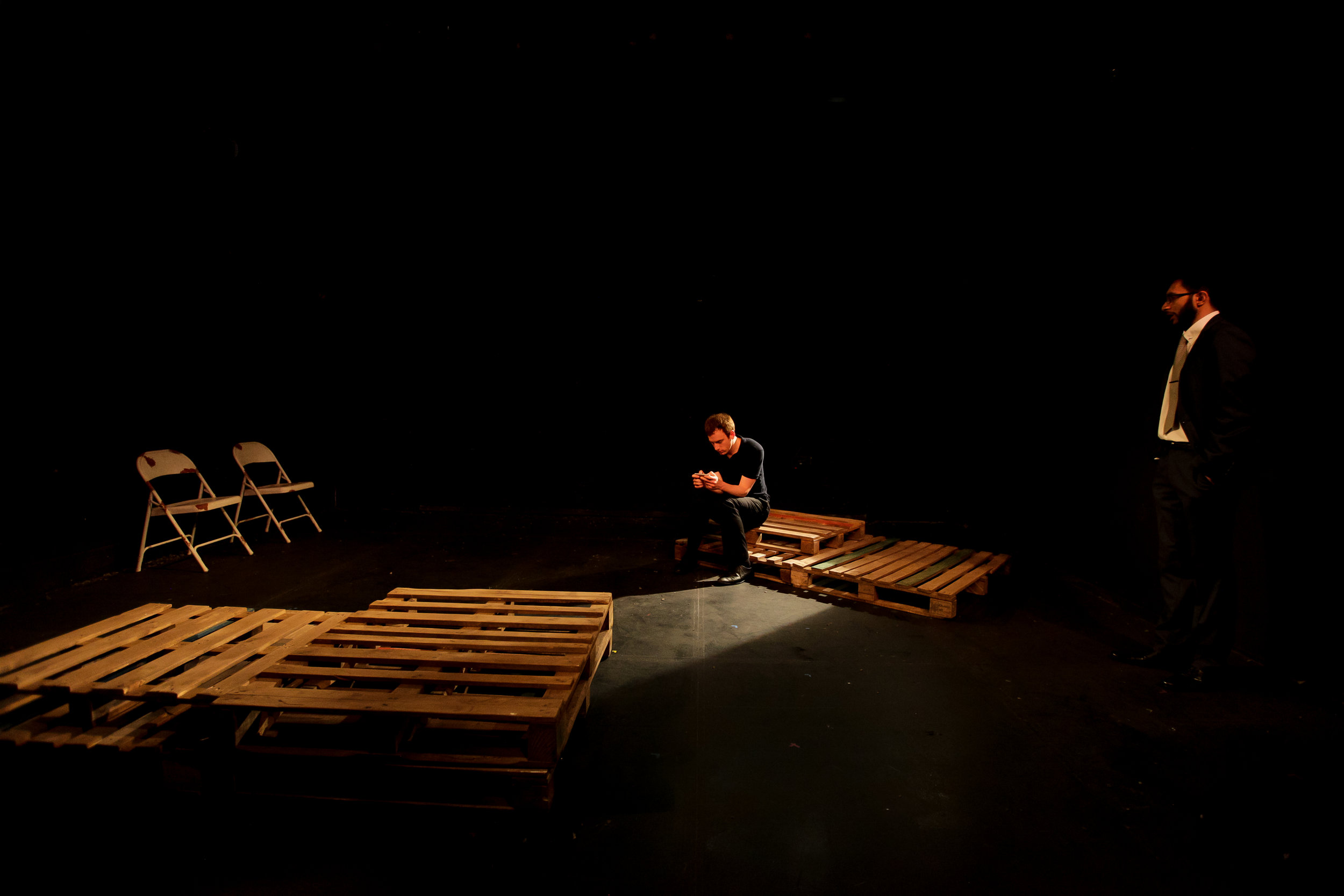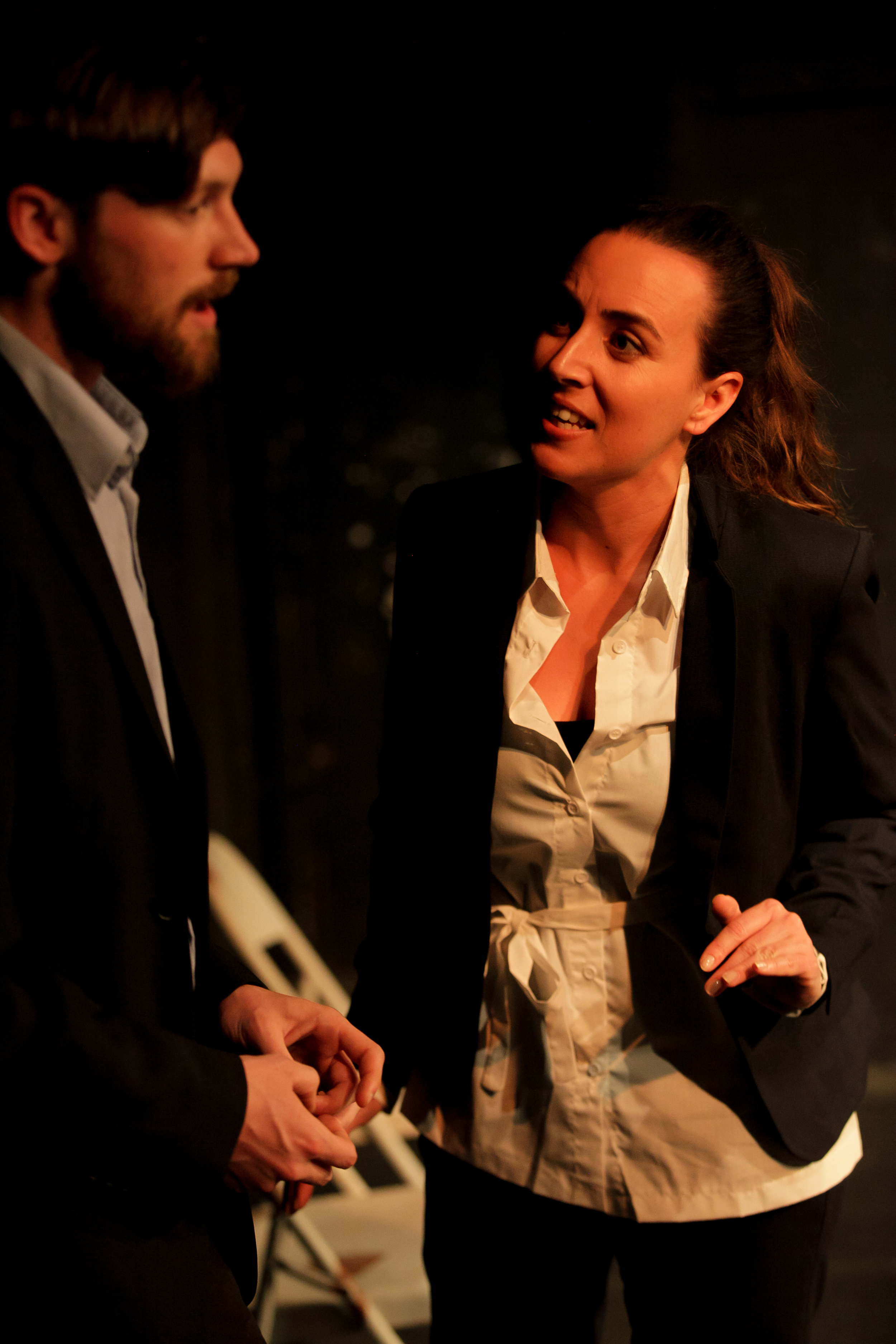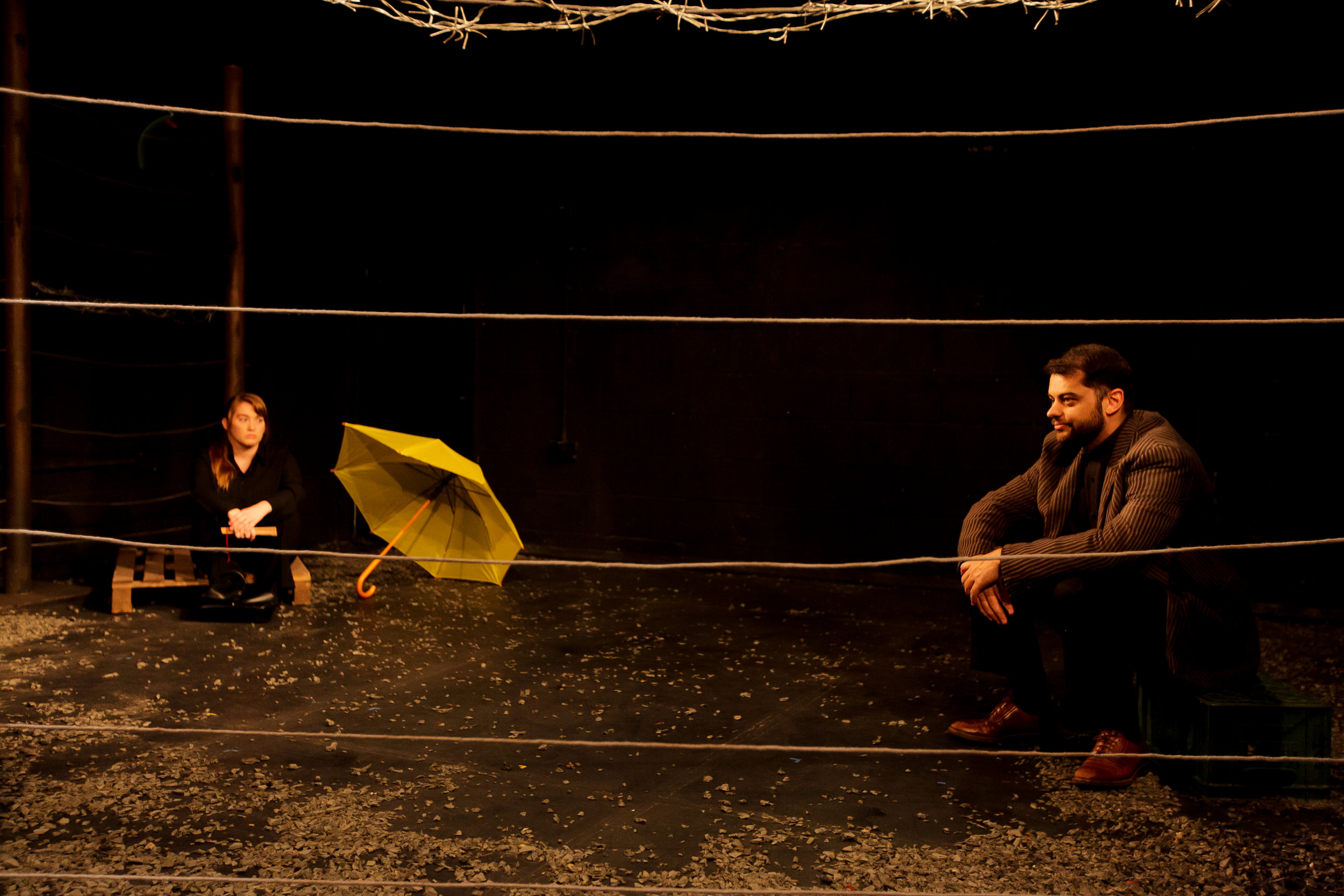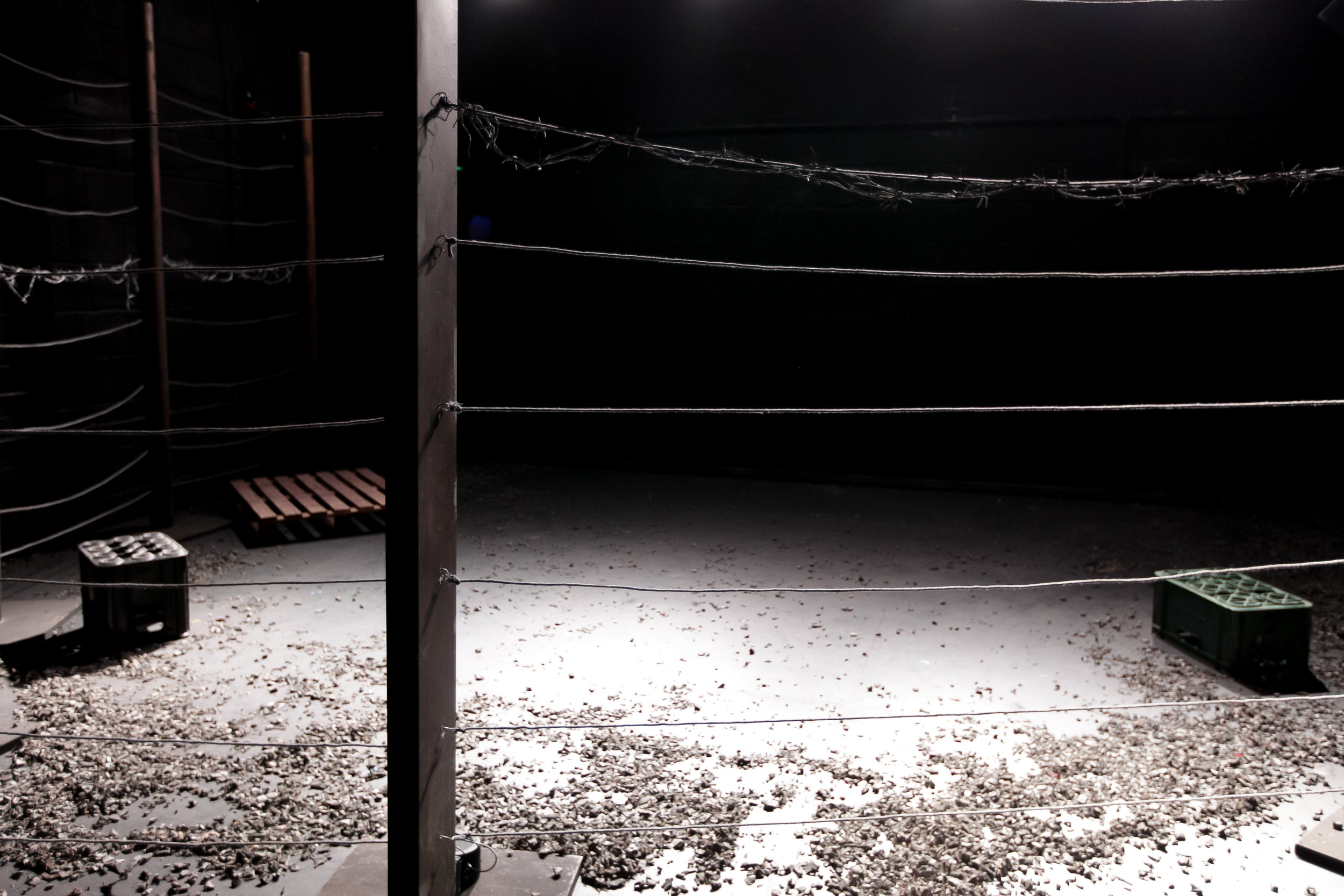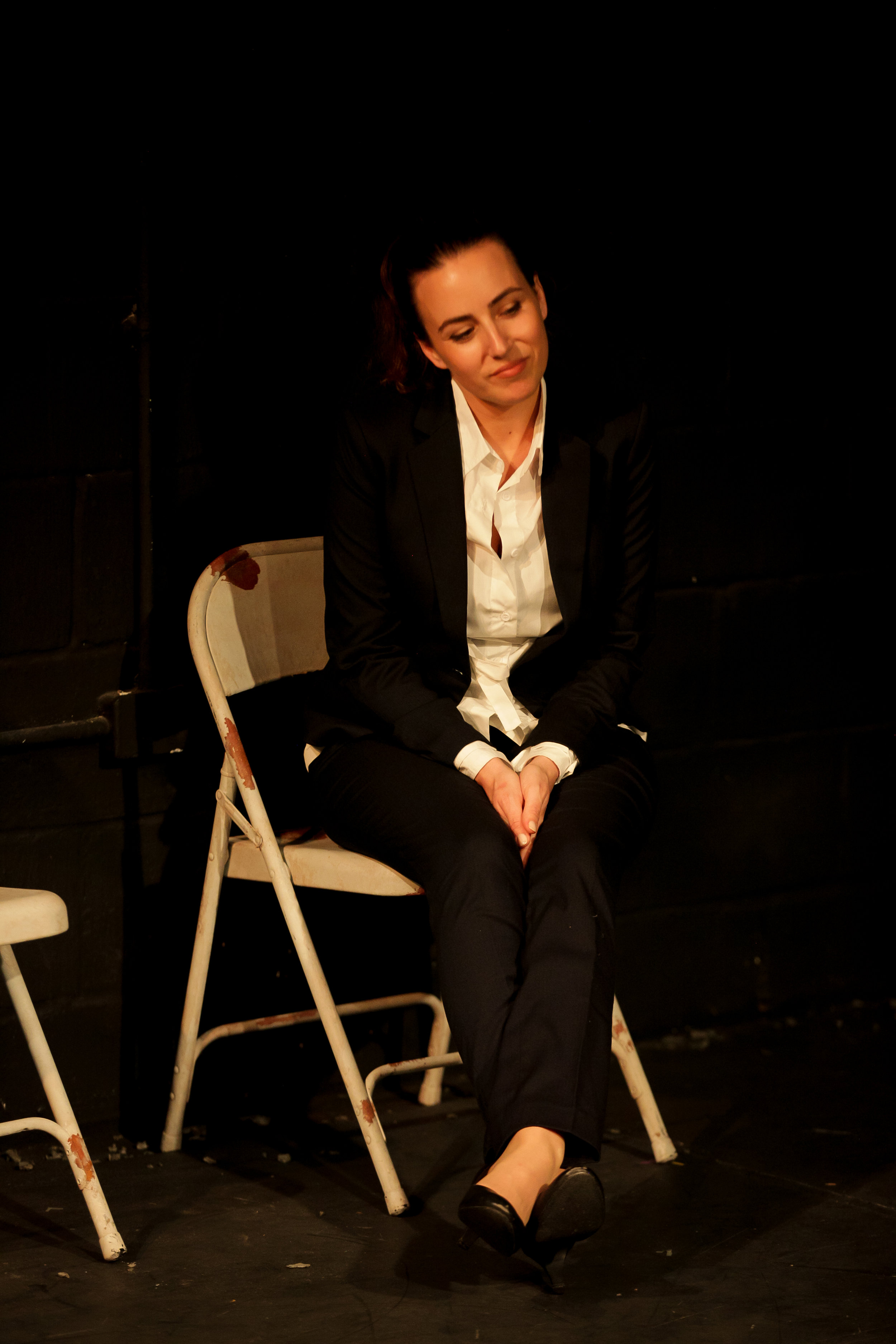The Serpent’s Teeth by Daniel Keene
With graduating MFA (Acting) students East 15 2017
A double bill that explores the ways in which ordinary people struggle on with their lives in the context of war.
In Citizens, a picture of life is revealed through the fragments of a series of un-connecting juxtaposed events. Soldiers is set in an air force hangar where family members gather to receive the bodies of their sons, brothers, husbands and friends lost in a conflict in the Middle East.
In all the violence of it’s scale, it is after all a war’s impact on specific and precious lives that resounds so poignantly.
Student Reflections
Reflection 1
Working with Kristine brought me back to me.
The more you work with her the more you realise it’s all about who you are, where you are from and acknowledging that this is what you are here to give and that this should be your starting point for any work. It’s also about understanding you have nothing to prove. That you are enough.
I loved watching her work. Taking the actor as the starting point and using her intra-cultural approach and her ‘complicité’ magic, she managed to ‘extract’ a truth from everyone and therefore get a more truthful performance from everyone.
It was about finding the simplicity of being you, and playing with it, play with all that you are, play, really play with your partners. It reminds you not to think too much about things but to live them, and recreate everything every time, just as children would do naturally.
The more I worked with her the more relaxation I could find in my body, voice and mind.
Kristine asked me to bring my “Frenchness" to my work. I quite did not understand at first, but I then understood she wanted me to interact on stage in English as I interact in the world in French : improvising in French made me realise how my body, attitude and voice were different in my own language. She made me realise that, coming back into English, the key was to find again the same sensations in my body, so I could find that ‘easiness’ in English too, and that authenticity in my voice and body language.
Lastly I could say that I also realised that… I was French. But not just French, SO French. And that I always have been running away from that. Here in England, I lost a lot of my confidence, and with it, a lot of my English. What did I have left? Kristine made me realise I still had something valuable to share as an actress : I have all that I am, and all that frenchness. Now I can relax. It’s enough.
Reflection 2
For me, the "pleasure to play onstage" is to be truly present in the moment. It allows the actor to strip away all preconceived notions of how a scene "should go" or "how it'll feel when I do this" or "how I'll look when I do this". It's a wonderful device for reminding the actor that the work is, inevitably, for the audience but the joy found onstage comes from transmitting the story out to the audience whilst simultaneously connecting through play with your fellow actors. As I stand backstage, the freeing thought of "just going onstage with the pleasure to play" relaxes my mind and puts me in the zone of focus, clarity, and peace. I have done all of the work in the process: now it's time to simply play. I find that Kristine's process allows the actor to stand within the work confidently whilst unabashedly being themselves. It's a truly freeing and rewarding experience.
Reflection 3
From the opening moments of rehearsal for THE SERPENT'S TEETH, I knew I was entering an atypical process. The warm-ups and exercises Kristine had us trying were all inherently playful and relaxed, but requiring a deep level of focus. This already put the company in a mental space of open communication with the other artists in the room. From there, the transition into scene work seemed painless.
Instead of taking hours of time doing meticulous table work, Kristine trusts the actors to bring in only what they conceive to be the main idea of a scene. Once the actors and the director agree upon this theme, Kristine devises a few short activities to help get the actors in the right frame of mind to play. For example, I had to do sprints with two other scene partners to find a scene's tempo, then enter into an improvised conversation centered around an argument to find the quality of banter which the scene required. Then, after walking through the scene in our own words, Kristine introduces the script. I've never experienced such a gentle first encounter with a text, normally this encounter can be a very stressful and can inhibit rather than open the actor. The only expectation here was that we would carry the energy and feeling established in the opening exercises into the words of the playwright.
As gentle as this process was, there was still some angst on my part and within the company at how relaxed her methods were. I find that, after training in a certain way at drama school, I relied upon the idea of "hard work" in training to assuage my own personal anxieties regarding my own competence and performance. As Kristine invited us to simply play and stop hiding behind the constructs of actions, choices, and character, I admit that I felt a certain amount of fear. This fear would be assuaged by Kristine's insistence upon finding a complicité with the other performers.
This idea of complicité: the absolute focus on the other proved to be a beautiful and effective tool. Like many of Kristine's methods, it draws from the Gaulier school of clowning: the clowning work that we did allowed me to reconnect with my vulnerability and the other actor(s) on stage. I found the pleasure to play again, the reasons to speak became evident, and my fear abated.
Key to this approach is that one trusts the process which Kristine endorses. If one does not trust her vision as a director and collaborator, than one will continue to self-censor. She tries to instil in us that we are talented artists and are, in fact, good at this. Watching Kristine work with other members of my cohort gave me deep joy; I witnessed classmates whom I've observed for two years find things on stage and deliver a maturity of work which I did not know they possessed.
My encounter with the audience: I found comfort in Kristine's process, and learnt to continue practicing the process on stage in front of an audience. This led to two very relaxed performances which I very much enjoyed.
Kristine's process taught me that challenging myself as an artist does not require being uncomfortable, and that the tools I need to read a text or be on stage are by no means external, but tools which I already possess. It has already paid dividends for me as I used her methodology in the next rehearsal room I had the fortune to be in, and now that sense of fearless play and fizzing energy remains as an integral part of myself as an actor.
